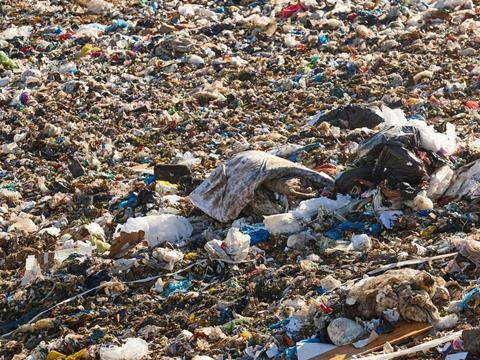
In a joint statement, 185 investors with combined assets of US$10 trillion are pushing for FMCGs, retailers, and other users of plastic packaging to take decisive action against plastic pollution by reducing consumption, phasing out hazardous chemicals, and supporting relevant policies.
Under the coordination of the Dutch Association of Investors for Sustainable Development (VBDO), the signatories express their concern that companies are not adequately responding to the environmental, social, or medical threats of their plastic waste. This apparently puts them at financial risk that could affect value creation and investment returns, with legislative changes taking place worldwide, lawsuits against companies becoming more frequent, and potential threats to brand value arising.
An estimated US$100 is spent every year as a result of plastic pollution, according to the Minderoo Foundation – a cost attributable to environmental clean-up, ecosystem degradation, shortened life expectancy, and medical treatment.
Other figures cited in the statement include the calculation of between 75 and 199 million tonnes of plastics in the ocean; the identification of over 3,000 potentially harmful chemicals in plastic food packaging; and findings from 2021 that the cradle-to-grave greenhouse gas emissions from single-use plastics equating to the total annual emissions of the United Kingdom.
As such, the signatories are calling for companies to reduce their material consumption, eliminate single-use packaging, and upscale reusable packaging systems. This should be backed up by an action plan with clearly defined timescales and progress reports verified by external parties, according to the statement.
Industry players are encouraged to support plastic reduction policies such as the Global Plastics Treaty and the Packaging and Packaging Waste Regulation, rather than critiquing them. Investors should also commit to the identification and elimination of substances that could risk human health and subsequent financial value in plastic packaging, the signatories say.
“With increasing concerns and rising awareness of biodiversity loss and nature degradation, the food industry must transition to more sustainable production and consumption,” stated AXA IM. “An important element of this transition is reducing the industry’s reliance on plastics. As intensive users of plastic packaging, food retail and consumer goods companies have a key role to play to make a scalable change and increase financial resilience of their business models by tackling the plastics crisis.”
“It’s worrying to see most companies in the FMCG and grocery retail sectors are taking limited action to mitigate the financial risks posed by plastics,” said Angélique Laskewitz, executive director at VBDO. “Today investors are sending a clear signal to these companies they will face ever-increasing pressure if they don’t act soon to substantially reduce their plastic footprint.”
“Most companies are not acting fast enough in the face of the unfolding plastics crisis,” added Arthur van Mansvelt, senior engagement specialist at Achmea Investment Management. “The Global Plastics Treaty offers a unique and historic opportunity to tackle the problem at the source – we need companies supporting its ambition on prevention and reuse, not lobby against it. It’s their chance to be part of the solution.”
The statement also cites the Global Commitment progress report released by the Ellen MacArthur Foundation in 2022, in which the company warned that most of its own business signatories would ‘almost certainly’ miss their targets to completely implement recyclable, reusable, or compostable packaging by 2025.
On the other hand, WWF released its third annual Transparent 2022 public report as part of its ReSource: Plastic programme, which highlighted a reported 3,100 metric ton reduction of problematic plastics and 35% increase in recycled content among all its members. Going forward, it encouraged them to continue adjusting their own business practices and to vocalise their support for wider systemic changes.
This year, the World Economic Forum’s Global Plastic Action Partnership (GPAP), the Ellen MacArthur Foundation’s Plastics Initiative, and WRAP are collaborating to share knowledge between their global initiatives in pursuit of the worldwide reduction of plastic pollution.
If you liked this article, you might also enjoy:
McKinsey on whether or not on-pack sustainability claims affect consumer spending
A deep dive into the most important packaging sustainability trends and solutions














No comments yet